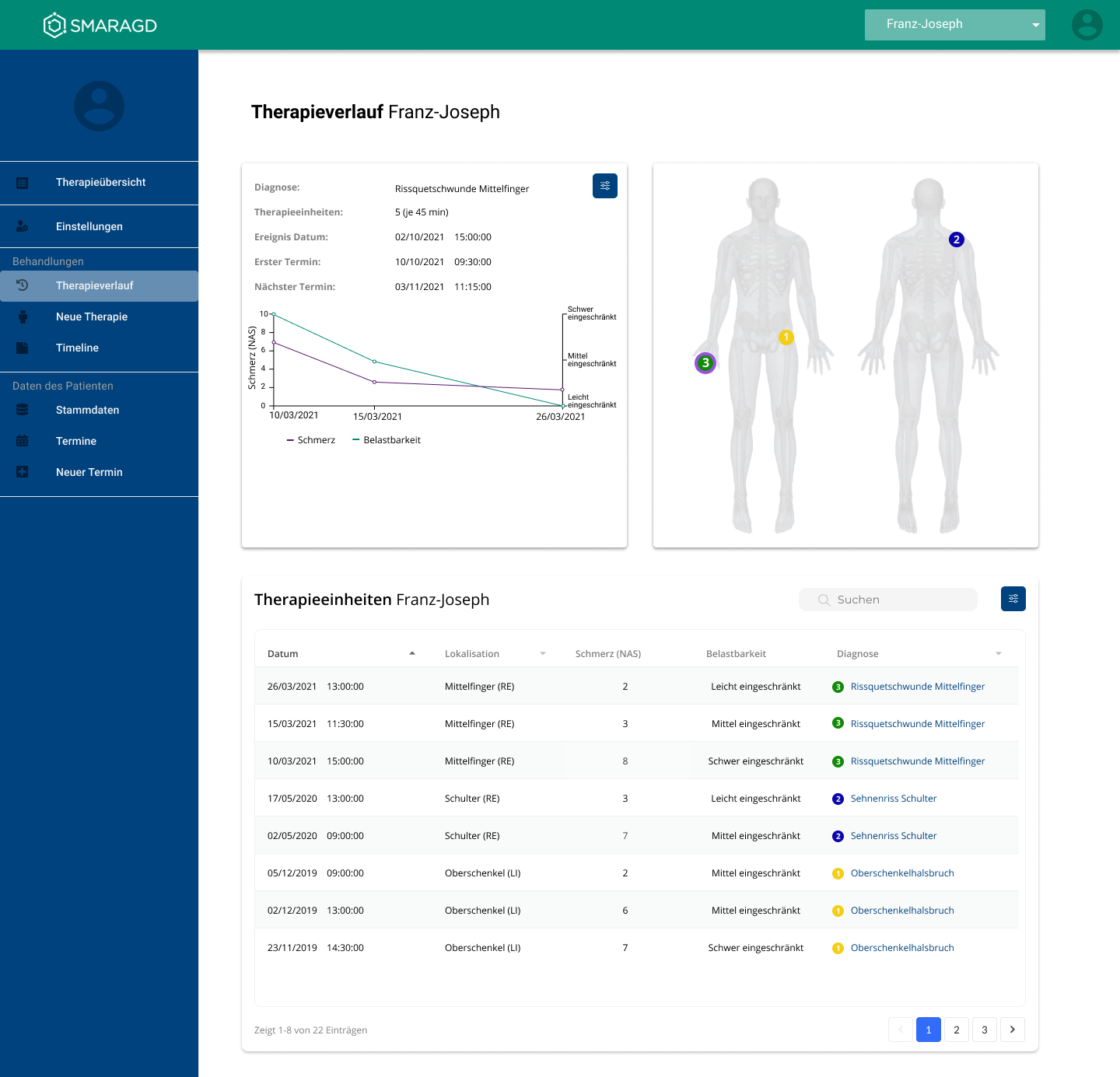 https://www.synyo.com/wp-content/uploads/SYNYO-NEWS-featured-image-Press-Release.png
400
459
leo
https://www.synyo.com/wp-content/uploads/2017/09/synyo-logo.png
leo2025-12-15 09:55:062025-12-18 09:55:28ReIncluGen: European Research Project Maps New Ways to Strengthen Support for Migrant Women
https://www.synyo.com/wp-content/uploads/SYNYO-NEWS-featured-image-Press-Release.png
400
459
leo
https://www.synyo.com/wp-content/uploads/2017/09/synyo-logo.png
leo2025-12-15 09:55:062025-12-18 09:55:28ReIncluGen: European Research Project Maps New Ways to Strengthen Support for Migrant WomenSMARAGD

SMARAGD: Project to support therapists through aggregation and visualisation of health data ends
Electronic health data is generated every day by patients. Crucial to decide on further therapeutic treatment, the presentation of these data does not always meet the information needs of therapists. The SMARAGD project ends after 30 months of research with novel insights on the needs-based aggregation, analysis and visualisation of health data to support therapists in their daily work.
After 30 months, the FFG-funded research project SMARAGD: Smart Aggregation and Visualisation of Health Data has come to an end. Coordinated by the IMC Fachhochschule Krems, the interdisciplinary consortium consisting of SYNYO, Karl-Franzens University Graz, Johannes Kepler University Linz, Medical University Graz, Know-Center, and University of Vienna have implemented the ambitious project plan: to design components for a system to intelligently aggregate, analyse, and visualise health data to support occupational and physiotherapists in their everyday work.
From burden to support
Hospital information systems are practical and useful tools; however, they can be experienced as a burden. Searching for relevant information can be difficult and time-consuming, particularly if systems are not designed for a specific occupational group – such as therapists. SMARAGD focused on this often-neglected group, aiming to provide a solution that supports them in generating knowledge from a plethora of information, which is the basis for further therapeutic intervention. The success of SMARAGD was demonstrated by the great interest it generated in the health sector. Even more important, however, was the positive feedback provided by the therapists participating in the testing iterations, proving the relevance and importance of such a solution.
From information needs to a paper prototype
Following an interdisciplinary approach, the main focus at the beginning of the project was on the identification of information needs of occupational therapists and physiotherapists. Involving users from the very beginning, SMARAGD partners conducted telephone interviews, participant observation, and focus groups to understand what health data is relevant for therapists in their everyday work [link to NEW01004504EN]. Based on these results, exemplary components for an intelligent aggregation and visualisation of these data were developed and piloted in user tests. The legal and organisational implications of such a system were reflected on the basis of the Austrian legal situation and reflected upon in group discussions with experts.
Visualising health data for therapists
SYNYO’s main role in the SMARAGD project was to design visualisations of health data that support therapists. Based on the identified information needs, as well as the user requirements, SYNYO iteratively designed a user interface that allows therapists to easily and intuitively identify relevant information. This should allow therapists to save time – time which can be spent with the patient instead of searching for information.
The user interface was tested with the users – occupational and physiotherapists – in three iterations, continuously refining the visualisations based on the feedback, resulting in a final version as demonstrated below. The image shows an overview of the patient, providing the therapist with information about their diagnosis, the number of therapy sessions, as well as information about pain, capacities, and other relevant information. It also provides an overview of the whole patient in a body chart, thus allowing the therapist to see at a glance whether the patient is suffering from other injuries. This allows the therapist to get a quick overview of the patient’s status at first glance, before switching to a more detailed view.

Links
https://www.smaragdprojekt.at/
https://twitter.com/smaragd_projekt
Keywords
Health data, data aggregation, data analysis, visualisation, occupational therapists, physiotherapists




